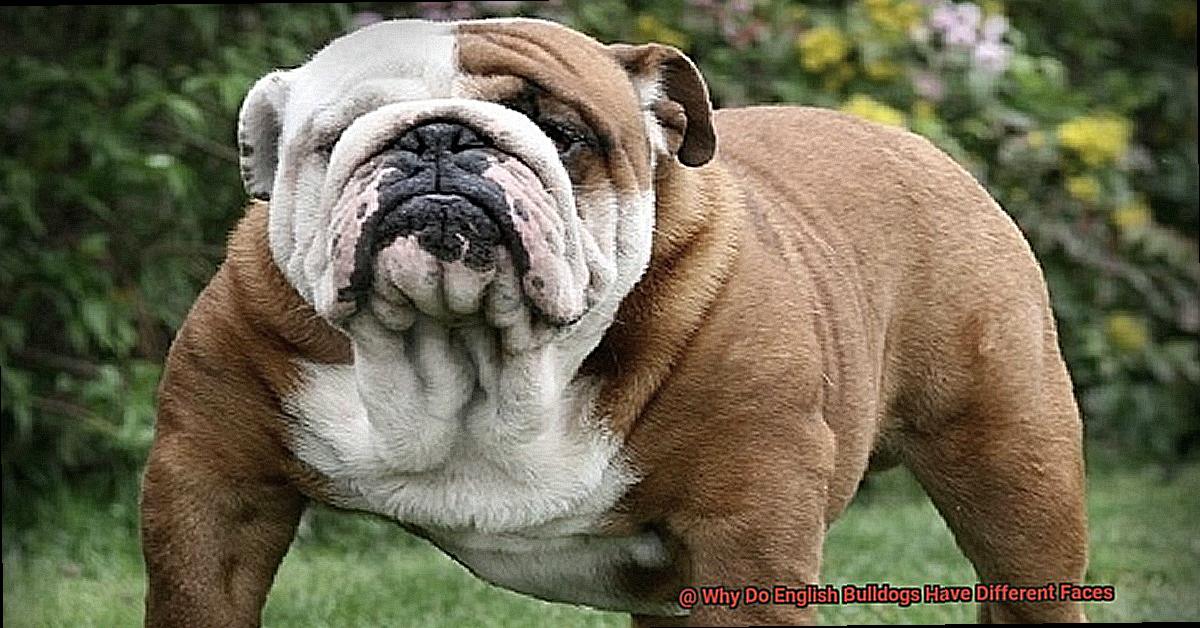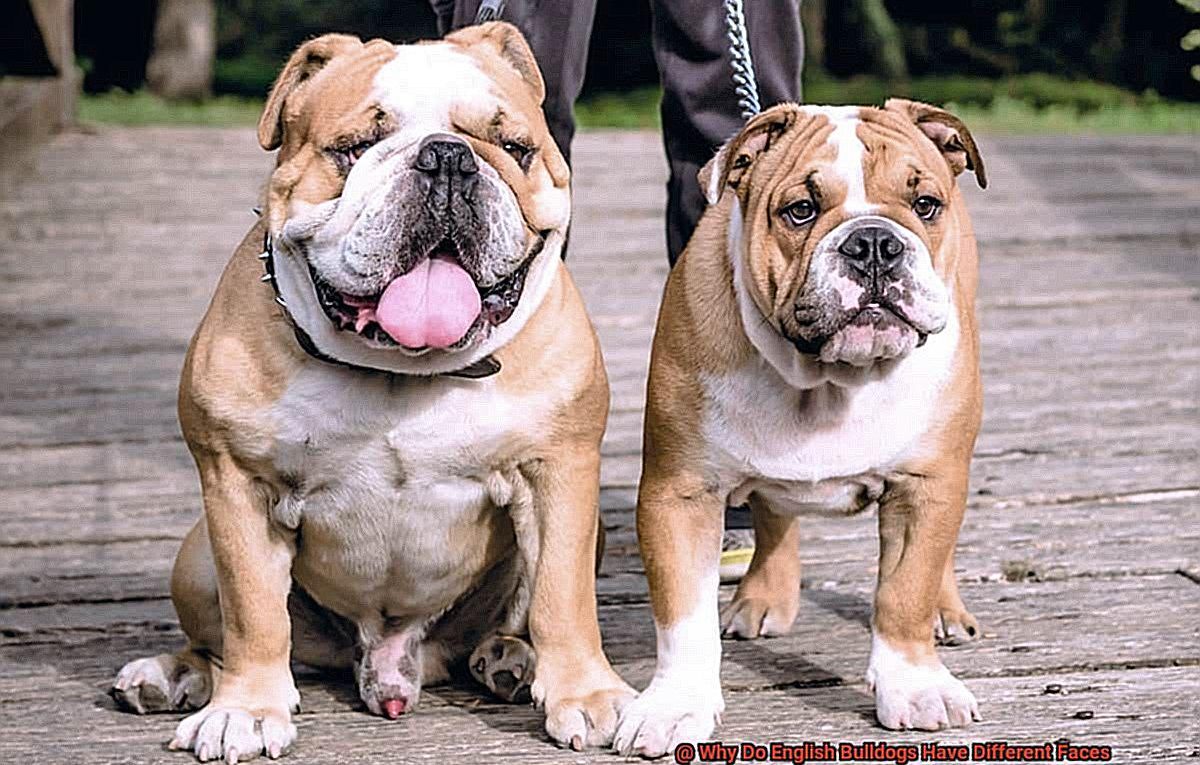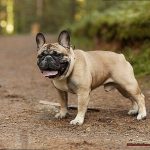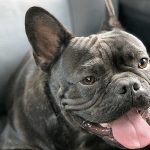Why Do English Bulldogs Have Different Faces?
Ever notice that English Bulldogs have their own unique faces? From the ‘apple-head’ to the ‘flat-faced’ style, these beloved dogs come in a variety of colors and sizes. But why is this? In this blog post, we’ll explore why English Bulldogs have such distinct faces.
We’ll show how selective breeding has created the variety of breeds we know and love today.
If you’re curious about these special pups, keep reading!
What is an English Bulldog?
Contents
- 1 What is an English Bulldog?
- 2 How Should a Purebred English Bulldog’s Face Look Like?
- 3 Why Do Bulldogs Have Short Faces?
- 4 What Causes Variations in Different Bulldogs’ Facial Features?
- 5 The Impact of Genetics on an English Bulldog’s Face
- 6 How to Care for Your Bulldog’s Face
- 7 Health Issues Associated With Certain Facial Features
- 8 Why Are English Bulldogs So Clingy?
- 9 Conclusion
This breed of domestic dog is characterized by its short muzzle, round head, and strong jaws. They are known to be incredibly friendly and loyal animals that make great family pets.
English Bulldogs typically weigh between 40 and 50 pounds, with males being larger than females. They have an average life expectancy of 8–10 years, though some may live longer with proper care. Their coats are usually short and smooth and come in colors such as white, brindle, black, fawn, and red.

These dogs are known to be very expressive, with their wrinkled faces conveying a range of emotions from happiness to sadness. To keep them healthy and happy, it is important for them to receive regular exercise and grooming.
How Should a Purebred English Bulldog’s Face Look Like?
A purebred English Bulldog should have a broad head and face, with a flat nose and wide muzzle. The eyes should be round and set wide apart, with a dark color. The ears should be small, thin, and folded over. The cheeks should be full and well-defined. The mouth should be wide and the lips thick.
When it comes to the neck, it should be short, thick, and muscular. And don’t forget about the chest—it should be broad and deep.

Put together all these elements, and there you have it: these are all the key features of a purebred English Bulldog’s face that you’ll want to look for when selecting your perfect puppy!
Why Do Bulldogs Have Short Faces?
The answer lies in selective breeding. Bulldogs were specifically bred to have shorter snouts and larger heads for the purpose of bull baiting. This gave them a brachycephalic skull, meaning they have a wide head and short face. This was done to give them the strength to better grip their prey during bull baiting.
As a result of this selective breeding, English Bulldogs now have shorter noses and wider heads than other breeds of dogs. Unfortunately, this comes with some drawbacks. Bulldogs are more prone to respiratory issues due to their shorter snouts, as they are unable to take in as much air as other breeds of dogs.
So the next time you see a bulldog with its short face and broad head, you’ll know why. Through selective breeding, this iconic look has become synonymous with the Bulldog breed, all thanks to their ancestors’ need for strength during bull baiting.
What Causes Variations in Different Bulldogs’ Facial Features?
English Bulldogs are known for their unique facial features, but why do they look so different from one another? The answer lies in a combination of genetic mutations and environmental factors.
Genetic mutation is the most common cause of variations in facial features. This mutation can be passed down from parent to pup or triggered by environmental factors such as temperature changes.
An English Bulldog’s face is determined by the combination of genes it inherits from its parents.
In addition to genetics, diet, exercise, and stress levels can all contribute to variations in facial features.
For instance, bulldogs with higher stress levels may have a more pronounced muzzle than others. Inbreeding can also lead to a variety of facial characteristics in bulldogs, as certain traits are passed down through generations.
The Impact of Genetics on an English Bulldog’s Face
English Bulldogs are beloved for their adorable, distinctive faces. But did you know that genetics plays a major role in shaping the face of an English Bulldog?
Genetics has a large influence on the facial features of this breed, from short muzzles and broad heads to deep wrinkles and longer noses.
The breed was selectively bred for certain traits, including a shorter muzzle, a broader head, and deep wrinkles.
However, genetic mutations can also cause some bulldogs to have longer noses than others. Inbreeding is another factor that can affect the shape of an English Bulldog’s face.
When two closely related dogs are bred together, it increases the chances of inheriting genetic defects that can lead to facial deformities.
Poor breeding practices may also result in bulldogs having shorter muzzles and wider heads than normal.
It’s essential to understand how genetics influences the facial characteristics of English Bulldogs so you can ensure you’re getting a healthy pup from a reputable breeder.
How to Care for Your Bulldog’s Face
As a pet parent, it is essential to keep your Bulldog’s face clean and healthy. Here is a step-by-step guide to help you take care of your Bulldog’s face like a pro.
Brushing
English Bulldogs have sensitive skin, so it is important to brush their faces regularly with a soft brush or comb specifically made for dogs with short faces. This will help remove dirt, debris, and any mats or tangles that may have formed.
Bathing
Bathe your Bulldog’s face weekly with a mild shampoo or pet wipes to keep it clean and free of bacteria. To avoid any irritation or dryness, make sure you rinse thoroughly after bathing.
Trimming
Trim the fur around the eyes and mouth of your Bulldog to avoid eye irritation or infection caused by long fur getting into their eyes or throat.
Moisturizing
To protect your Bulldog’s face from dryness and irritation, apply a moisturizing cream or ointment to the skin around its nose. Additionally, cleaning the folds of its face with a damp cloth or baby wipes can help prevent infection due to dirt, bacteria, and yeast buildup.
Monitoring
Monitor regularly for signs of irritation or infection such as redness, swelling, or discharge from the eyes, nose, or mouth. If you notice any of these symptoms, contact your veterinarian immediately for advice on how to treat the issue. If you do not feel comfortable grooming your dog’s face yourself, consider taking them to a groomer for professional care.
Health Issues Associated With Certain Facial Features
Bulldogs are known for their short faces and swollen eyes, but these features can also lead to a variety of health issues. Brachycephalic airway syndrome is one of the most common conditions associated with facial features in bulldogs. It’s characterized by difficulty breathing, snoring, and other respiratory problems.
Eye problems are also common in bulldogs due to their deep-set eyes. Entropion and ectropion are two eye conditions that can be caused by the shape of the face. If not treated properly, these conditions can lead to blindness or other serious complications.
Skin fold dermatitis is another health issue that can occur due to wrinkles on the face of a bulldog. This condition involves bacteria and yeast buildup in the folds of the skin, resulting in inflammation and infection if not taken care of properly.
Other health issues associated with their facial features include dental problems, ear infections, and joint pain due to their short legs. It’s important for owners to be aware of any health conditions that could be related to particular facial features so they can get their dog the correct treatment if necessary.
Why Are English Bulldogs So Clingy?
The answer lies in their history of being bred as companion animals. They have an innate need to be around their humans, following them around the house or curling up beside them on the couch. Not only that, but they express their affection with barks and grunts.
This clinginess can be both a blessing and a curse, as it can be overwhelming for some people who are not used to having such an affectionate pet.
To help manage this behavior, it is essential to give your English Bulldog plenty of exercise and mental stimulation. This will help them release some of that energy in a positive way.
Additionally, providing ample positive reinforcement when they exhibit calm behavior will help them learn what behaviors are acceptable and reinforce those behaviors in the future.
So, English Bulldogs are wonderful companions that will shower you with love and devotion. With the right guidance and preparation, you can enjoy all the benefits of having an incredibly loyal pet without feeling overwhelmed by their clinginess.
Also Read: Common Eye Ailments French Bulldogs Must Face?
Conclusion
English Bulldogs are truly one-of-a-kind. From their short muzzles and wide heads to their deep wrinkles and expressive faces, these dogs have captured the hearts of many. But why do they look so different from each other?
Selective breeding and genetic mutation are responsible for the distinct facial characteristics that set English Bulldogs apart from other breeds.
Unfortunately, these features can also lead to health issues such as brachycephalic airway syndrome, eye disorders, and skin fold dermatitis if not taken care of properly.
In addition to their distinctive looks, English Bulldogs are also known for being incredibly clingy. This is due to their history as companion animals and their innate need for human interaction. Owners can enjoy all the benefits of having a loyal pet without feeling overwhelmed by its clinginess.




